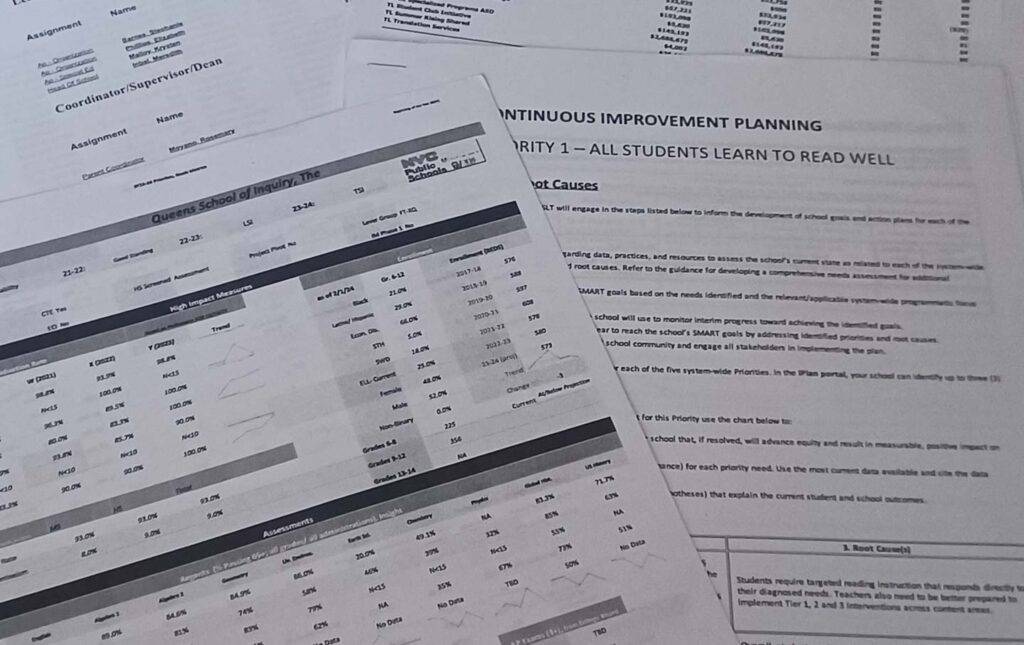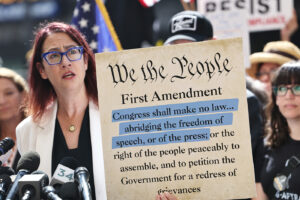July 2, 2024
Finances Are Not a Struggle With The Queens School of Inquiry
By John Myers
By Huifen Li

Contrary to popular student belief, the Queens School of Inquiry (QSI), a public high school in New York City (NYC), does not struggle with finances. QSI has received $7 million this year alone to fund their school, most of it paying teacher salaries and technology for students first. Students have been concerned about QSI’s budget due to the conditions around the school.
Students have not been receiving funding for their clubs, leading them to believe that QSI was limited in its resources. June Hong, a junior at QSI and the co-president of the Red Cross Club, encountered difficulties in establishing her club, a few being in the financial department. “We had to either spend our own money or find a way to raise our own money that doesn’t require funding to begin with,” Hong said.
This year, as shown on the NYC Public Schools website, $4.3 million of the budget pays for school operations. A fair share of this part pays for teacher salaries and necessary technology. Money that is left over is spent on whatever else the school may need or want.
QSI receives funding through the city budget provided to them by the Fair Student Funding (FSF) formula and their secondary budget provided by the Research Foundation of the City University of New York (CUNY).
The FSF is a method used by the New York state government to determine how much money each school should receive based on student needs and how many students are enrolled.
Students who are struggling financially, academically, have a disability, or are learning English as a new language will bring in more money for their school as they have special needs. However, this upside is matched with the downside of needing to pay more expenses. QSI gets as much money as it does due to the special needs students enrolled in their school, getting other budget allocations as a result. The one that brings in the most money is the ASD (Autism Spectrum Disorder) NEST program.
Designed for high academically performing students on the spectrum, the ASD NEST program is a partnership between the New York City Department of Education, CUNY, Hunter College, and New York University. The program provides a tremendous amount of funding to the schools that are a part of it, as QSI has received $2.7 million from it, just this year.
With the amount of money that QSI has, Meredith Inbal, the principal of QSI, often wonders why some students do not believe that the school has enough money to afford the things they want. “Sometimes I think students expect us to have all the things a large comprehensive high school has, and when we don’t have these things, they interpret that to mean we have limited funds,” Ms. Inbal states.
QSI was designed to be a small school, which explains why it does not have everything that a large public school in NY is expected to have. They prioritize student academics instead – a new addition being the SAT prep program.
Leah Aronav, a freshman at QSI, confirms the validity of Ms. Inbal’s belief, as she does not believe that “a lot of money goes towards the student experiences and events” such as field trips and school-wide events like pep rallies, things that large high schools in NYC typically have.
Not many students know the circumstances of QSI’s budget, as evidenced by Hong. Those that do have a limited knowledge of it, or are on the School Leadership Team (SLT). The SLT is composed of an equal number of parents and teachers, the principal, two students who are either juniors or seniors, and in QSI’s case, an affiliated community organization representative.
“I remember that students were also allowed but I think it was after school so many students didn’t go,” Hong stated. “I remember that one of my teachers was telling the class about it, which is how I heard about it.” This year, with the busy schedules of the juniors and seniors, the SLT has had difficulty finding students to recruit.
If more students knew about the circumstances of the school budget, they would likely be encouraged to speak directly with Ms. Inbal or others in the main office who can make financial decisions.


